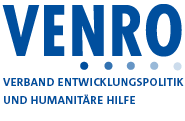What is unfolding before our eyes with the right-wing shift in the U.S. and Europe is not merely an aid cut, but a fundamental reconfiguration of the global economic order. These shifts are undeniable signs of the waning dominance of Western hegemony, ushering in a new world order – one that could work in Africa’s favour, but only if the continent defines its own terms of engagement.
The abrupt withdrawal of the U.S. from development and climate commitments is a wake-up call, with Europe following suit. The UK and Belgium have announced budget cuts, reflecting a longstanding decline in official development finance and shortened aid project cycles that fail to align with national development strategies.
For years, many across the continent have criticised the aid sector’s inefficiencies, wastefulness, and exploitative nature, yet few anticipated its disruption would come from within the U.S. itself. As Washington pushes to ‘make America great again’, it paradoxically undermines its own global influence, retreating into isolationism, though its stance on Gaza and South Africa suggests otherwise.
The U.S. unmasked: Power, aid, and imperialism
The U.S. has long positioned itself as a global leader, but its actions in aid, multilateral agreements, and international finance have often reflected imperialism rather than solidarity.
- USAID and political influence: Elon Musk recently stated that ‘’USAID was influencing elections [in other countries] in a way that was dubious.’’ For years, Africans have decried how the U.S. consolidates its hegemony under the guise of aid, using USAID as a tool to undermine nationally popular governments by funding parallel service delivery systems and civic organisations.
- Aid and structural dependency: The U.S., together with other Western nations, has played a key role in perpetuating Africa’s structural dependency, reinforcing the notion that Africa cannot function independently (Nkrumah, 1965; Rodney, 1972; Amin, 1985).
- Undermining global agreements: The U.S. consistently obstructs or waters down global treaties. It has refused to sign or ratify the Kyoto Protocol, the UN Convention on Biological Diversity, the Convention on the Rights of the Child, and the Convention on the Elimination of All Forms of Discrimination Against Women.
- Blocking multilateral progress: The U.S. has paralysed the WTO’s dispute settlement system since 2019 by unilaterally blocking the appointment of new judges to the Appellate Body. Despite near-universal consensus to proceed, Washington refuses to relent, stalling much-needed trade reforms.
The world won’t wait for the U.S. on climate action – neither should Africa
The U.S. withdrawal from the Paris Agreement for the second time is a direct attack on global efforts to reduce emissions. In 2024, global temperatures surpassed 1.5°C above pre-industrial levels, the hottest year on record, while the U.S. abandons its commitments.
The abrupt cuts to U.S. climate finance mean halting a USAID plan to support 500 million people through climate adaptation initiatives and also risk undermining efforts to mobilise 50 billion US-Dollar by 2030. It also ends support for clean energy facilities in Southern Africa, valued at 84.5 million US-Dollar by 2028.
Despite all this, it is possible to imagine opportunities in a world without the U.S. at the negotiating table. In fact, this moment presents opportunities in Africa’s favour to redefine its global role:
- Less obstructed negotiations: The Global North – sans the U.S. – and the Global South can push for more stable, rule-based financing systems for climate, health and development.
- Broadening climate finance contributors: Negotiations must now compel high-emitting emerging economies, like China and India, to shift from voluntary to obligatory contributions.
- Accelerating regional integration: Africa must unite to fast-track theimplementation of AfCFTA, the largest free trade area in the world, and move beyond its dependency on raw material exports.
- Strengthening regional financing mechanisms: With the realisation that Africa is „on its own,“ this must translate into action, such as an African regional fund, modelled after the African Union Peace Fund, with agreed levies for climate and pandemic response.
- Seizing economic agency: Ironically, Africa is now being forced to break free from its ‘baby elephant syndrome’, a perfect opportunity to define its own terms of engagement globally and bilaterally, ensuring it is a price maker, not a price taker, particularly in carbon markets and critical minerals.
- Deepening South-South cooperation: With the new order, we must learn from the ‘past’ U.S. model and foster cooperation that does not replicate power imbalances.
Making it costly for the U.S. to abandon global solidarity
The world does not need to accept U.S. isolationism without consequences. The U.S. still has the highest per capita emissions yet refuses to take responsibility.
If the world recognises the U.S. as a „dying empire“ (to quote Richard Wolff), it must reconfigure its engagement by reconsidering U.S. investment agreements; imposing tariff hikes on U.S. goods and services and even shifting diplomatic ties away from Washington. The ball is now in the world’s court.
Conclusion: Seizing the opportunity for a post-U.S. world
The current geopolitical reconfiguration, including the U.S. retreat into isolationism and European aid cuts, must be seen as an opportunity to push for higher ambitions in global solidarity – in climate, taxation, health, and multilateral cooperation.
For Africa, this is a chance to break free from neo-colonialism and assert its own economic and political agency.
Martha Bekele is an African researcher in climate and development financing and practices.
| Martha Bekele | DevTransform (Development Transformations) |
Die Inhalte auf dem VENRO-Blog geben Meinungen und Einschätzungen unserer Autor_innen wieder. Sie können von abgestimmten VENRO-Positionen abweichen.
 Mitgliederbereich
Mitgliederbereich
